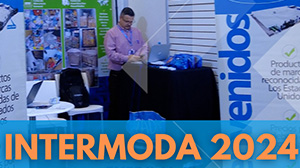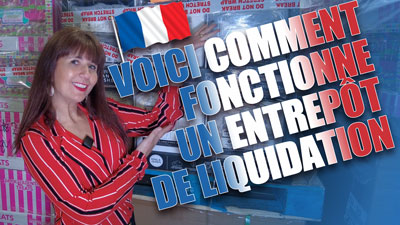Jacek Maksymiuk of Bank of Style
Our December Customer of the Month, Jacek Maksymiuk of Bank of Style started selling cosmetics online as a hobby when he was 15 years old and turned it into a veritable profit-generating business. At the time, he was looking for a way to make a little extra spending money and fell in love with the products he sold – clean, great smelling beauty products that were as attractive to his customers as they were to him. Years later, he and his wife have established two online businesses selling beauty products primarily to customers Central and Eastern Europe. “We have two businesses selling beauty products – Bank of Style and Marta Maksymiuk-CosmeticGarden.com. We focus solely on online sales and focus our efforts on exporting the products to Europe where many of our Central Europe customers take advantage of the strong Euro to US Dollar exchange rates.” Unlike many straight-resellers, the Maksymiuk couple has their own home-made line of beauty products – soaps, scrubs, lip care, bath and body items. “We have a passion for manufacturing all natural beauty products, and we supplement those with additional sales of brand name, well-known beauty products and cosmetics.”

Across his two websites, Maksymiuk has over 250 listings selling at any given time. “The more items you have listed, the bigger your reach. Customers are often looking for multiple types of products and the more we can offer them in one place, the better it is for us.” Maksymiuk creates his own products which takes care of about half of his sourcing needs. The other half he sources from several different wholesale liquidators. “I work with may different suppliers. I’m always searching for a combination of quality and great prices,” he states. Sourcing from various different companies allows him to keep expanding the variety of products he offers his clients and allows him to shop for the best prices around. “It does take some research and there definitely is a risk factor,” he says. “I do my research and try out a new supplier slowly, with small orders at first. I’m picky because in the beauty product business, every piece counts in order for me to make a profit. I always rate a supplier based on the quantity of items ordered versus the number that actually get delivered, the mix of colors I receive, the expiration dates on the products and their overall condition.”
While it’s important to gauge the overall quality of the items received, Maksymiuk does operate with realistic expectations based on his experience in the liquidation industry. “I would say that 30% of what I purchase needs to be thrown out. This of course, depends on the supplier but overall that is the percentage. That’s why it’s important for me to look at quality and price so that I can make a profit despite any throw-away items.” While it is typically recommended to try to repair or refurbish any damaged/diry items to try and resell them for maximum return, in the cosmetics business Maksymiuk believes that it is counter-productive. “The time you spend trying to repair broken/damaged cosmetics isn’t worth the return you get on them. We just throw those items out and try to make our profit on the ones that are good.” This means that not every single purchase will be profitable. In this business, like many others, profit margins are based on volume of sales. Not every purchase will be as profitable as the next but over time and with perseverance, sellers usually come out on top. Maksymiuk explains that he “would generally expect 40%+ of profit margin from any given lot, however in the makeup business there are many slow-mover items or items that simply don’t sell. Unfortunately I lose money sometimes in order to make money on something else. It’s a long-term numbers game.”
In order to increase his overall profits from a business that is relatively low-margin (as cosmetic items are small and lower in value than say, high end electronics), Maksymiuk began to wholesale his products as well. “Offering them in bulk lots allows me to move more product to generate cash flow to bring in new merchandise.” Most large cosmetic wholesalers on the internet sell in bigger lots of 250 pieces, 500 pieces at a time or more. To gain a leg up on that competition and to cater to a different market segment, Maksymiuk sells his wholesale lots in boxes of 25, 50, 75 or 100 pieces. “This allows customers to get a better price per piece and allows them to buy in quantities that suit their needs. Not everyone has a use for 250 or 500 units at a time.” Since much of his business is conducted with overseas customers, the merchandise needs to be cost-effective to ship as well. Offering them in smaller lots allows for smaller shipping costs and low invoice amounts that can be more convenient for overseas clients who are dealing with clearing the products through customs. “It’s also important to keep the weight down. Some lots that are too heavy in nail polish for example can be too expensive to ship overseas, preventing my customers from making their own profit on the items.”
To increase sales and to offset some of these shipping and customs costs his overseas customers face, Maksymiuk offers promotions in the form of discounts for his wholesale clients. Today, his business thrives from approximately 60% retail sales and 40% wholesale sales. Positioning oneself within the market and differentiating oneself form the competition is a challenge all retailers face – whether online or in a brick and mortar business. To address this challenge, Maksymiuk tries to “package and decorate [his] home-made beauty products attractively so customers feel they are getting a greater value.” Presenting the items attractively physically and price-wise both contribute to an item’s success. “I also try to price competitively. I research what items are selling for on other reseller’s websites and price myself somewhere in between. You don’t have to be the cheapest one out there, but you have to outwardly show that you provide great service and are a reliable source,” which he achieves with the help of his professionally designed websites. Maksymiuk believes that other than pricing and product presentation, an equally important factor in generating sales is the quality of an online reseller’s website. “At first, I decided to cut costs and build my own website. I quickly realized that it didn’t look the way I wanted so I hired someone else to do it for me.” Often times, investing some capital up front to set up a professional online storefront and shopping cart will go a long way towards ensuring the success of an online business. “You should try outsourcing through www.getafreelancer.com. I found my designer there who designed both my websites for a reasonable fee, allowing me to focus my time and efforts on actually selling the product rather than designing a framework to display it.”
He also says he specifically set up his websites to accept Credit Card payments directly through the shopping cart or Paypal to stream-line the purchasing process for his customers and make it easy to sell worldwide with the click a mouse. Over years of growing his business in the online cosmetics industry, Maksymiuk has learned a lot about what works and what doesn’t, and about how to have realistic expectations about the potential returns on an investment. “This isn’t an easy business method but if you’re determined and you love what you do, you get past the obstacles and find ways to make it work.” His best advice to new sellers getting started in this business is to “sit down and think about whether this is really the business you want to have.” He describes that there will be lots of ups and downs and in order to stick with it, you’ll need to be sure what you are selling is 100% “your thing.” If you don’t love what you sell, you can get burned out and discouraged much more easily. He advises readers to “remember that an item is only worth as much as someone is willing to pay for it. If people are willing to pay only a few percent of the item’s original value, the fact that you purchased it at 10% of its value doesn’t necessarily mean that it will sell at a profit. It’s important to keep a long-term view and to realize that profits come with volume of sales.”
He stresses that one should “be patient. If you love what you’re doing your business will grow even after the toughest times – maybe slower than you thought, but it will grow. Just stick with it.” At this time, Maksymiuk’s businesses act as secondary sources of income to his full time job. “We’re planning to change it in a year or two. We want to make sure that we keep meeting our goals and if that happens, we’ll focus solely on making, buying and of course selling beauty products.”










